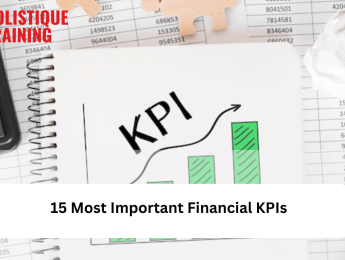- Table of Contents
- What Is Goal Management in the Workplace?
- Why Is Goal Management Important after Goal Setting?
- Clear Direction
- Accountability
- Adaptability
- Motivation and Engagement
- Resource Allocation
- Main Stages of Goal Management
- 1- Goal Definition
- 2- Planning and Strategy
- 3- Execution
- 4- Monitoring and Tracking
- 5- Feedback and Adaptation
- 6- Completion and Evaluation
- How to Become Better at Goal Management
- Set SMART Goals
- Prioritise Effectively
- Break Down Goals
- Use Technology
- Regular Check-ins
- Adaptability
- Celebrate Milestones
- Continuous Learning
- How to Encourage Goal Management As a Leader
- Lead by Example
- Align Goals with Vision
- Facilitate Collaborative Goal Setting
- Provide Clear Guidelines
- Offer Support and Resources
- Establish Regular Check-ins
- Recognise and Celebrate Achievements
- Encourage Learning and Growth
- Provide Constructive Feedback
- Empower Ownership
- In Conclusion
Introduction
In the intricate tapestry of modern workplaces, success rarely happens by chance. It's a symphony of strategic planning, determined effort, and meticulous execution. As the engines of progress keep humming, the importance of goal management becomes more pronounced than ever. Imagine embarking on a voyage without a compass or a map – the destination remains elusive, the path uncertain. Similarly, setting goals without effective goal management is akin to wandering in the wilderness without a clear direction.
In this comprehensive guide, we plunge into the depths of goal management, deciphering its significance in the workplace, the stages that pave the way to triumph, and the secrets to mastering this art. Goal management isn't a mere administrative task; it's the orchestration of dreams into tangible achievements. So, fasten your seatbelts as we embark on a journey to unravel the intricacies of goal management and its transformative power.
What Is Goal Management in the Workplace?
At its core, goal management in the workplace refers to the systematic process of defining, planning, tracking, and achieving objectives that contribute to an individual's or an organisation's overall success. It's the bridge that connects the initial goal-setting phase to the ultimate attainment of those goals. While goal setting provides direction and purpose, goal management ensures that the journey to success is well-structured, monitored, and adaptable to changing circumstances.
Imagine a ship embarking on a voyage without a captain and a map – the chances of reaching the intended destination would be slim. Similarly, goal management serves as the captain and the map, steering efforts in the right direction and adjusting course when necessary.
Why Is Goal Management Important after Goal Setting?
Goal setting is undoubtedly the foundation of any achievement, but goal management is the structure that supports it. Here are some compelling reasons why effective goal management is crucial after the initial goal-setting phase:
Clear Direction
While goal setting sets the destination, goal management is the roadmap that guides individuals and teams to their intended outcomes. It provides clarity on the steps, responsibilities, and specific actions needed to achieve the set objectives. Without this roadmap, the risk of veering off course or losing sight of the goal becomes significantly higher.
Effective goal management minimises ambiguity, offering a structured path forward. It ensures that everyone involved understands their roles, responsibilities, and the specific contributions required. This clarity is especially crucial in larger organisations where multiple individuals or teams work toward interconnected goals. The absence of effective goal management could result in a lack of coordination, leading to inefficiencies and missed opportunities.
Accountability
Setting goals is just the beginning; achieving them requires commitment and accountability. Effective goal management establishes a system of accountability by incorporating milestones, deadlines, and metrics for measuring progress. When individuals and teams are aware of these metrics, they are more likely to stay committed and engaged in their tasks.
This accountability serves as a driving force, encouraging individuals to take ownership of their responsibilities. It fosters a sense of responsibility not only to oneself but also to the team and the organisation. Regular check-ins and progress evaluations become mechanisms through which individuals can measure their performance against established benchmarks, ensuring that everyone is contributing effectively to the overall goal.
Adaptability
The journey toward success is rarely a linear path. External factors, unexpected challenges, and changing circumstances can impact the pursuit of goals. Goal management allows for adaptability by enabling adjustments based on these variables.
In a dynamic work environment, unforeseen challenges can arise at any moment. Effective goal management ensures that goals remain relevant and achievable despite shifting circumstances. The ability to adapt the plan as needed is crucial for overcoming obstacles and staying on course. Without this adaptability, goals may become obsolete, leading to frustration and a loss of momentum.
Motivation and Engagement
Progress is a powerful motivator. Effective goal management involves tracking and celebrating achievements along the way. When individuals see tangible evidence of their progress, it acts as a source of motivation and engagement.
Recognition of accomplishments reinforces the value of the work being done. It creates a positive feedback loop where individuals feel acknowledged for their efforts, prompting them to invest more energy into their tasks. This motivational aspect is vital for sustaining momentum, especially when pursuing long-term or challenging goals.
Effective goal management transforms the workplace into an environment where achievements are acknowledged and celebrated. This positive reinforcement contributes to a culture of success, where individuals are inspired to go above and beyond in their efforts.
Resource Allocation
Resources, whether they be time, money, or energy, are finite. Inefficient resource allocation can impede progress and hinder goal achievement. Goal management plays a crucial role in ensuring that resources are allocated efficiently.
Through proper goal management, individuals and teams can prioritise tasks based on their contribution to overarching goals. This prevents the wastage of resources on activities that do not align with the defined objectives. It also allows for a more strategic distribution of resources, optimising the efficiency of the entire process.
In essence, effective goal management is the compass that not only keeps everyone on the right path but also ensures that the journey is well-planned, adaptable, and fueled by a sense of accountability and motivation. Without it, the pursuit of goals becomes a chaotic venture, with the destination remaining elusive and the efforts lacking the necessary direction and purpose.
Main Stages of Goal Management
Effective goal management comprises several distinct stages, each of which plays a pivotal role in guiding and monitoring progress. Let's explore these stages in detail:
1- Goal Definition
This initial stage involves setting clear, specific, and measurable goals. Whether they are individual, team, or organisational goals, they need to be well-defined to avoid misunderstandings and ensure everyone is on the same page. In fact, research conducted by Dominican University as mentioned by Bramework has revealed that individuals who establish goals increase their likelihood of achieving them by an impressive 43 percent. However, the study further demonstrated that individuals who establish specific and challenging goals exhibit a higher probability of attainment compared to those who opt for simpler goals.
2- Planning and Strategy
With goals set, the next stage involves translating these aspirations into actionable plans. This includes delineating the steps required to achieve the set objectives, allocating resources effectively, and developing strategies to overcome potential obstacles.
Strategic planning is the backbone of goal management. It involves a meticulous examination of the resources available, the potential challenges that may be encountered, and the identification of key milestones. This stage is akin to charting a course on the map; it establishes a clear route and defines the necessary preparations for the journey ahead.
3- Execution
Execution is the stage where plans transition into actions. Individuals and teams begin the implementation of tasks outlined in the strategic plan, adhering to the set timelines and milestones. This stage is the heartbeat of goal management, as it involves the actualisation of the envisioned objectives.
Executing a plan requires collaboration, effective communication, and a commitment to the outlined strategies. It is where the rubber meets the road, and progress is initiated. Success in this stage is contingent on the ability to stay focused, overcome challenges, and work cohesively towards the shared goal.
4- Monitoring and Tracking
Regular monitoring is essential to gauge progress accurately. This stage involves tracking performance against the established metrics and milestones. Monitoring serves as the compass, providing insights into whether the journey is on course or if adjustments are required.
Tracking progress allows for real-time assessment and enables timely interventions. It provides visibility into the effectiveness of the strategies employed and identifies areas that may require additional attention. This continuous oversight is indispensable for maintaining alignment with the defined goals.
5- Feedback and Adaptation
Feedback loops are integral to the goal management process. Collecting feedback from team members, stakeholders, and assessing progress helps identify areas of improvement and adapt the plan if necessary. This stage is analogous to recalibrating the compass based on the changing landscape.
Feedback provides valuable insights into the efficacy of the strategies employed and the overall performance. It allows for a dynamic approach to goal management, acknowledging that circumstances may evolve, and adjustments are needed to ensure continued progress.
6- Completion and Evaluation
Upon reaching the destination – achieving the goal – it's essential to pause and evaluate the journey. What went well? What could be done differently next time? This stage involves a reflective analysis of the process and outcomes.
Evaluation is a crucial component of the goal management cycle as it informs future strategies. It's an opportunity to learn from both successes and challenges, refining approaches for subsequent goals. This reflective practice contributes to the continuous improvement of goal-setting and management techniques.
In summary, the main stages of goal management form a coherent and interconnected process. From the inception of clear and inspiring goals to the evaluation of outcomes, each stage is integral to the overarching success of the goal management journey. It's a dynamic and iterative process that requires attention, adaptability, and a commitment to continuous improvement.
How to Become Better at Goal Management
Improving your goal management skills requires a combination of self-awareness, strategic thinking, and effective communication. Here are some actionable steps to enhance your ability to manage goals successfully:
Set SMART Goals
Familiarise yourself with the SMART criteria – Specific, Measurable, Achievable, Relevant, and Time-bound. Applying these principles to your goals ensures they are well-defined and attainable. Specific goals provide clarity, measurable goals enable tracking progress, achievable goals are realistic, relevant goals align with broader objectives, and time-bound goals set clear deadlines.
Table 1: Examples of SMART goals
SMART Goal | Description | Significance |
Increase Sales by 10% in Q4 | Boost revenue through strategic sales | Measurable impact on financial objectives |
Complete Project X by June 30 | Timely delivery of Project X tasks | Aligns with project timelines and deadlines |
Achieve 95% Customer Satisfaction | Enhance customer experience and loyalty | Clear metric for gauging customer happiness |
Obtain Project Management Cert | Acquire skills for improved task management | Enhances professional development goals |
Reduce Project Errors by 20% | Implement measures to enhance accuracy | Directly addresses quality improvement goals |
Prioritise Effectively
Not all goals are equal in terms of urgency and importance. Utilise techniques like the Eisenhower Matrix to categorise tasks based on these factors. This allows you to prioritise your efforts, focusing on tasks that are both urgent and important, and delegating or deferring tasks that are less critical.
Break Down Goals
Complex goals can be overwhelming. Break them down into smaller, manageable tasks. This not only makes the process less daunting but also enables steady progress tracking. Achieving smaller milestones provides a sense of accomplishment and keeps motivation high throughout the journey.
Use Technology
Leverage goal management tools and software to streamline the process. These tools can help with setting reminders, tracking progress, and collaborating with team members. Embrace technology to automate repetitive tasks, allowing you to allocate more time to strategic aspects of goal achievement.
Regular Check-ins
Schedule regular check-in meetings to review progress, discuss challenges, and provide support. These interactions foster accountability and collaboration within a team. Regular check-ins also offer an opportunity to address any roadblocks promptly and ensure that everyone is aligned with the overall goals.
Adaptability
Be open to adjusting your plans when circumstances change. Flexibility is key to navigating unexpected challenges while staying aligned with your goals. Embrace a mindset of continuous improvement and learn from experiences. Adaptability ensures that your goals remain relevant in dynamic environments.
Celebrate Milestones
Recognise and celebrate achievements along the way. Acknowledging progress boosts morale and reinforces the value of goal management. Celebrating milestones not only provides a sense of accomplishment but also energises individuals for the next phases of the journey.
Continuous Learning
Stay updated on best practices in goal management. Books, courses, and seminars can provide insights and strategies for optimising your approach. Continuous learning keeps you informed about evolving trends, ensuring that your goal management skills remain sharp and adaptable.
In essence, becoming better at goal management involves a commitment to clarity, organisation, adaptability, and continuous improvement. These practices empower individuals to navigate the complexities of goal pursuit successfully. Whether you're working on personal goals or leading a team towards shared objectives, mastering goal management is an ongoing process that yields significant benefits in both personal and professional spheres.
How to Encourage Goal Management As a Leader
In the realm of effective goal management, leaders play a pivotal role in shaping the direction and success of their teams. As a leader, you possess the ability to inspire, guide, and empower individuals to excel in their roles and contribute to the attainment of organisational objectives. Encouraging a culture of goal management within your team not only enhances productivity but also fosters a sense of purpose and collaboration. In this section, we'll delve into strategies that leaders can employ to promote goal management and cultivate a thriving environment for achievement.
Lead by Example
As a leader, your actions speak volumes. Demonstrate your commitment to goal management by setting and achieving your own goals. When your team witnesses your dedication, they are more likely to follow suit. Share your experiences, challenges, and successes, as this transparency creates an environment where everyone feels comfortable discussing their own goals.
Align Goals with Vision
Ensure that the goals set by individuals and teams align with the organisation's overarching vision and mission. When employees understand how their efforts contribute to the bigger picture, they are more motivated to invest their energy and creativity into achieving those goals. Leaders should consistently communicate the strategic significance of each goal, emphasising the collective impact of individual and team accomplishments on the organisation's success.
Facilitate Collaborative Goal Setting
Encourage team members to participate in the goal-setting process. Collaboration fosters a sense of ownership and accountability, as everyone contributes to shaping the direction of the team. When individuals have a say in setting their goals, they are more likely to be committed to achieving them. Facilitate open discussions where team members can share their perspectives, insights, and aspirations, creating a more inclusive and motivating goal-setting environment.
Provide Clear Guidelines
Offer guidance on how to set effective goals that adhere to the SMART criteria. Help your team members define specific, measurable, achievable, relevant, and time-bound goals. By providing clear guidelines, you ensure that the goals are well-structured and aligned with the team's objectives. Clear guidelines also prevent misunderstandings and help individuals set realistic expectations for themselves.
Offer Support and Resources
Support your team by providing the necessary resources, tools, and training required to achieve their goals. Address any challenges they might encounter and provide solutions or assistance when needed. This support system fosters trust and collaboration, making it easier for individuals to stay on track. Leaders should actively inquire about any barriers or resource needs, demonstrating a genuine commitment to the success of their team members.
Establish Regular Check-ins
Schedule regular check-in meetings to discuss progress, challenges, and next steps. These meetings provide an opportunity for open communication, allowing team members to share their accomplishments, seek guidance, and address any roadblocks. Regular interactions keep everyone engaged and accountable. Leaders should use these check-ins not only to monitor progress but also to reinforce the importance of the goals and provide guidance when necessary.
Recognise and Celebrate Achievements
Acknowledge and celebrate milestones reached along the way. Recognition boosts morale and reinforces the value of goal management. Publicly recognising achievements not only motivates the individual but also sets an example for others to strive for excellence. Leaders should make a concerted effort to celebrate both individual and team accomplishments, creating a positive and encouraging work environment.
Encourage Learning and Growth
Promote a culture of continuous learning. Encourage your team members to seek out opportunities for skill development and self-improvement. Learning and growth not only contribute to goal achievement but also enhance overall job satisfaction. Leaders can support this by providing access to training programs, workshops, and resources that facilitate the professional development of their team members.
Provide Constructive Feedback
Offer constructive feedback to help individuals fine-tune their goals and strategies. Positive reinforcement and guidance create an environment where mistakes are seen as opportunities for growth. Constructive feedback empowers individuals to improve and adapt their approaches. Leaders should aim to provide feedback that is specific, actionable, and supportive, emphasising a developmental rather than punitive approach.
Empower Ownership
Foster a sense of ownership over goals by allowing individuals to take the lead in their pursuit. This autonomy encourages innovation and creative problem-solving, as team members are more invested in finding effective solutions. Leaders should delegate responsibility and empower their team members to make decisions related to their goals. This sense of ownership fosters a greater sense of accountability and initiative.
If you need help in becoming better at goal management as a leader, and work on other skills as well, make sure to check out our course ‘Perfecting Your Management and Leadership Skills.’ This comprehensive program is designed to equip you with the tools and strategies needed to excel in guiding your team towards success.
In Conclusion
Goal management is the art of turning aspirations into reality. It's the dynamic process that propels individuals and organisations forward, transforming goals from mere concepts into tangible accomplishments. From defining goals to evaluating outcomes, each stage of goal management plays a vital role in shaping success. By becoming adept at goal management techniques, you equip yourself with the skills needed to navigate the complexities of modern work environments and achieve remarkable results. Remember, setting a goal is like planting a seed; effective goal management ensures it grows into a flourishing tree of accomplishment.























